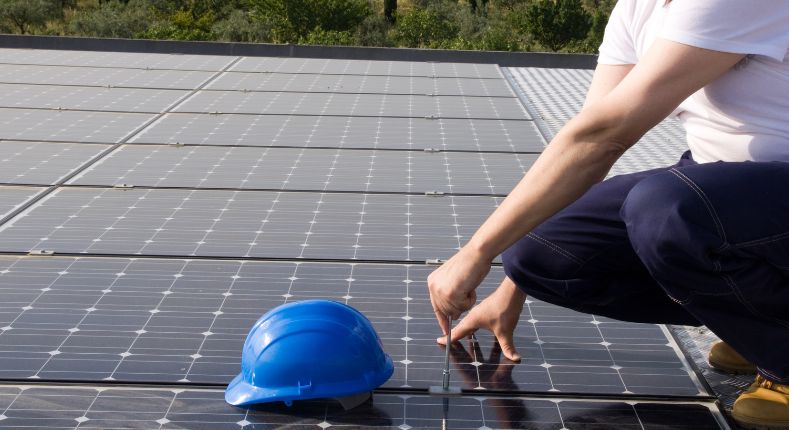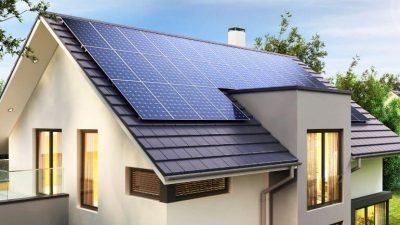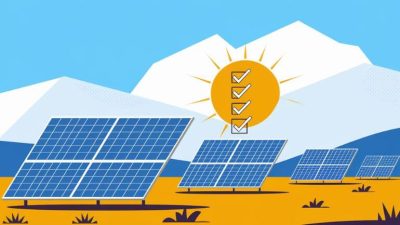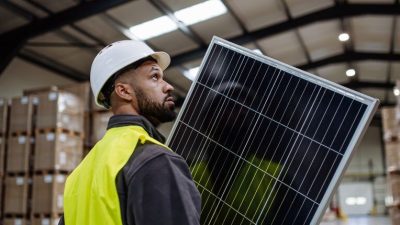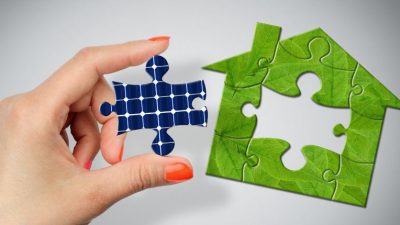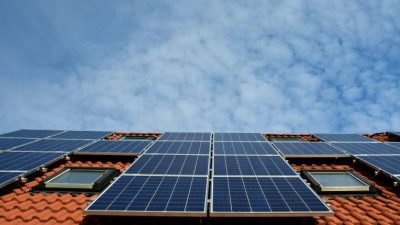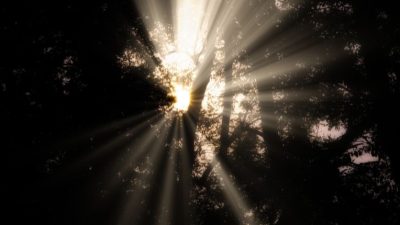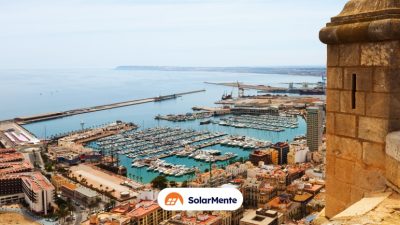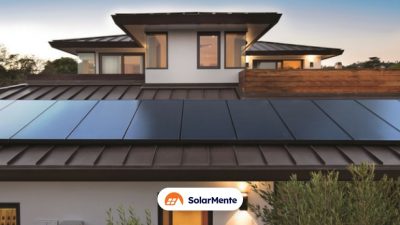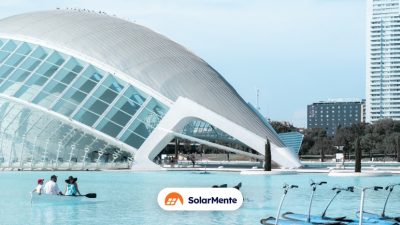In the search for cleaner and more sustainable energy alternatives, solar energy has established itself as one of the most promising and effective solutions available to us. This technology not only represents a step towards energy independence, but also offers an opportunity to significantly reduce our carbon footprint.
However, one of the main considerations when opting for this technology is to understand the initial investment required and, more importantly, the durability of this investment.
In this post, we will explore in depth the typical lifetime of solar panels, the factors that contribute to their degradation, and best practices for prolonging their efficient operation. You will then be able to make informed decisions on how to implement and maintain your solar installation to optimise its long-term benefits.
Lifetime of Solar Panels
When investing in solar technology, one of the first questions that arises is: how long will my solar panels last?
The answer is encouraging, as solar panels are designed to be durable and efficient over many years. Generally speaking, the standard lifetime of solar panels varies between 25 and 30 years. However, it is important to note that this figure is only a benchmark indicating the period during which manufacturers guarantee that the panels will produce energy at a level close to their original capacity.
Over these 25 to 30 years, the panels do not suddenly stop working at the end of this time; rather, they continue to generate electricity, albeit with slightly reduced efficiency. It is fascinating to know that many panels exceed this life expectancy. In fact, the world’s first solar PV panel, installed more than 60 years ago, is still in operation, demonstrating the potential longevity of this technology.
Beyond the lifetime promised by warranties, the actual lifetime of a solar panel can be positively or negatively affected by the quality of the panel and the conditions under which it operates. High quality panels installed in ideal conditions and properly maintained can not only meet, but exceed their expected lifetime, maintaining high performance for many decades.
This ability of solar panels to continue to operate effectively beyond their guaranteed lifetime offers a major economic and environmental advantage.
It allows owners and businesses to amortise the initial investment over many years, while continuing to contribute to reducing carbon emissions.
Factors Affecting Durability
The durability and performance of solar panels do not depend solely on their design or the quality of their manufacture; they are also influenced by a number of external and environmental factors. Understanding these factors can help to take preventive measures to extend the life of the panels and optimise their performance.
1. Environmental conditions
- Direct Solar Exposure: Solar panels are designed to absorb sunlight, but excessive exposure to ultraviolet radiation can accelerate the degradation of some components.
- Temperature: High temperatures can negatively affect the efficiency of solar panels. Most panels are tested to operate effectively in a specific temperature range, and overheating can reduce their ability to generate power.
- Extreme Weather: Events such as storms, hail, and high winds can cause direct physical damage to panels, affecting their structural integrity and operational efficiency.
2. Physical Factors
- Micro-cracks: These small cracks in PV cells can occur during manufacturing, transport or installation. Although they may not initially significantly affect energy production, they can expand over time and reduce the efficiency of the panel.
- Shading: The efficiency of a solar panel can also be compromised by partial shading due to trees, buildings or other structures. Shading can cause a “hot spot” effect that deteriorates solar cells and decreases overall energy production.
- Dirt: Accumulation of dust, leaves, and other materials can block sunlight, decreasing the amount of energy the panels can generate. Keeping the panels clean is essential to ensure maximum performance.
3. Chemical degradation
- PID (Potential Induced Degradation): This phenomenon occurs when electrical stresses in the system cause a migration of ions into the solar cells, which reduces their ability to generate electricity.
- Corrosion: Environmental conditions such as humidity can cause corrosion on the metal components of solar panels, especially in coastal areas where the salinity of the air is higher.
4. Quality of Installation and Maintenance
- Improper installation: Improper installation can lead to structural and electrical problems in the solar system that not only reduce efficiency but can also shorten the life of the panels.
- Inadequate maintenance: Lack of regular maintenance can allow minor problems to become major problems, negatively affecting the longevity and efficiency of solar panels.
Understanding and mitigating these factors is crucial to ensure that solar panels operate at their optimum capacity for as long as possible.
Maintenance to Maximise Durability
Regular maintenance of solar panels is essential to ensure that solar panels operate at peak performance throughout their lifetime.
Although solar panels are generally low maintenance, there are several essential practices that can help prolong their efficiency and prevent long-term problems.
1. Regular Cleaning
- Panel Cleaning: Accumulation of dirt, dust, leaves, and other debris can block sunlight and significantly reduce the efficiency of the panels. It is recommended that solar panels be cleaned several times a year, especially in areas with heavy pollution or under trees that can drop materials on the panels.
- Cleaning Techniques: Use clean water and, if necessary, mild soap. Avoid abrasive materials or harsh chemicals that may damage the surface of the panels. For hard-to-reach places or large installations, consider hiring professional cleaning services.
2. Visual Inspections
- Checking Supports and Structures: On a regular basis, it is vital to check that the mounting structures are secure and without signs of deterioration. Any movement or damage to structures can affect the efficiency and safety of the installation.
- Inspection of Cables and Connections: Ensure that all electrical connections are secure and free of signs of corrosion or wear. Regular inspections can identify problems before they affect the operability of the system.
3. Shading Prevention
- Trim Trees and Vegetation: Keep the area around the solar panels clear to avoid shading. This includes pruning trees and shrubs that may grow and block direct sunlight to the panels.
4. Performance Monitoring
- Monitoring systems: Use monitoring technology to track the performance of solar panels in real time. This can help to quickly detect any decrease in efficiency that could indicate a problem.
- Data Review: Regularly analyse production data to ensure that the panels are generating the expected amount of energy. Significant variations may be an indicator of a problem that needs attention.
5. Professional Service
- Professional Inspections: In addition to visual inspections and regular maintenance by the owner, it is beneficial to schedule periodic professional inspections. A qualified technician can perform a more thorough analysis, identifying problems that are not readily visible.
When to Consider Panel Replacement
Although solar panels are durable and have a long life span, there will come a time when it may be necessary to consider replacing them. Knowing how to recognise this moment is crucial to maintaining the efficiency of the solar system and continuing to make the most of renewable energy.
Here are some criteria and signs:
- Significant Reduction in Efficiency
- Visible and Extensive Damage
- Technological Advances
- Guaranteed End of Life
- Changes in Energy Needs
Find out more about our Solar Subscription!
Are you ready to make the move to solar power or do you need advice on how to optimise your current system? At SolarMente, we’re here to help you every step of the way.
Our innovative solar subscription programme offers an affordable, hassle-free solution so you can enjoy clean, renewable energy without worrying about high upfront costs or maintenance.

